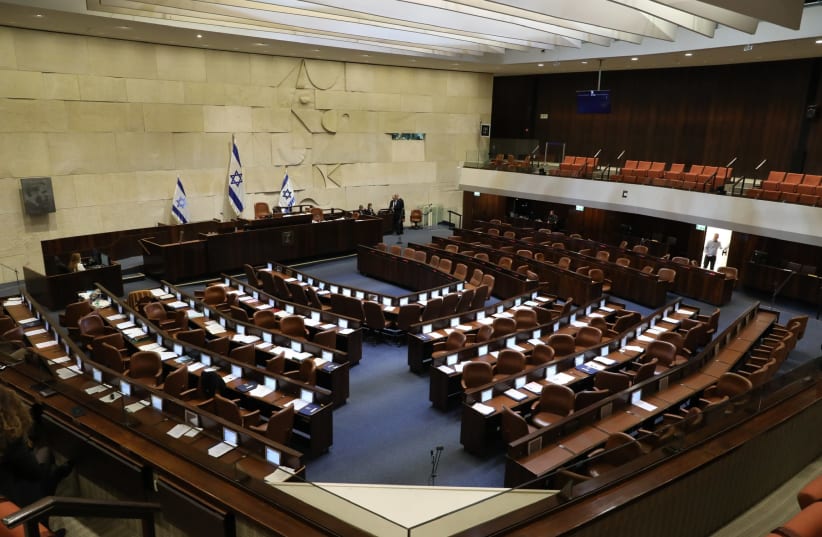The change would allow the addition of NIS 90 billion to fight against the outbreak and for treating ill Israelis.
The change in the Basic Law is made necessary by the fact that there has not been a government for a year and the state has not had an approved budget since January 1.
The Economic Ministry published a draft law minutes before Shabbat to change the Basic Law addressing the State Economy.The law "lays down the framework for the budget laws and the basic rule," according to the Knesset's website.
According to the Basic Law, the state budget is for one year and is meant to set out the expected and planned expenditure of the government. The government presents the budget bill to the Knesset at the time prescribed by the Knesset or by one of its committees empowered to do so.
A change in a Basic Law requires the support of at least 61 MKs, but the Prime Minister's Office and the Economic Ministry are convinced that the opposition will support it, according to Ynet.
The government will meet on Sunday evening to vote on the bill. NIS 80 billion of the proposed funds will be used for the economic plan proposed by the government. NIS 10 billion will be used to increase the budget of the Health Ministry; about NIS 18 billion will be given to National Insurance for unemployment payments.
The law will allow the increase of the monthly spending limit by NIS 27 billion, the advanced payment of state dedicated bonds to National Insurance by NIS 18 billion and the increase of current expenditure by NIS 45 billion until December. The deficit at the end of the year is expected to be 8%-9% compared to the previous goal of 3%, according to Ynet.Basic Laws are laws legislated by the Knesset in lieu of an official constitution. Eventually, the Basic Laws are meant to constitute, "with an appropriate introduction and several general rulings, the constitution of the State of Israel," according to the Knesset's website.The system of Basic Laws was the product of a compromise in June 1950, referred to as the "Harari proposal," which states that, "the First Knesset assigns to the Constitution, Law and Justice Committee the preparation of a proposed constitution for the state. The constitution will be made up of chapters, each of which will constitute a separate basic law. The chapters will be brought to the Knesset, as the Committee completes its work, and all the chapters together will constitute the constitution of the state," according to the Knesset's website.
